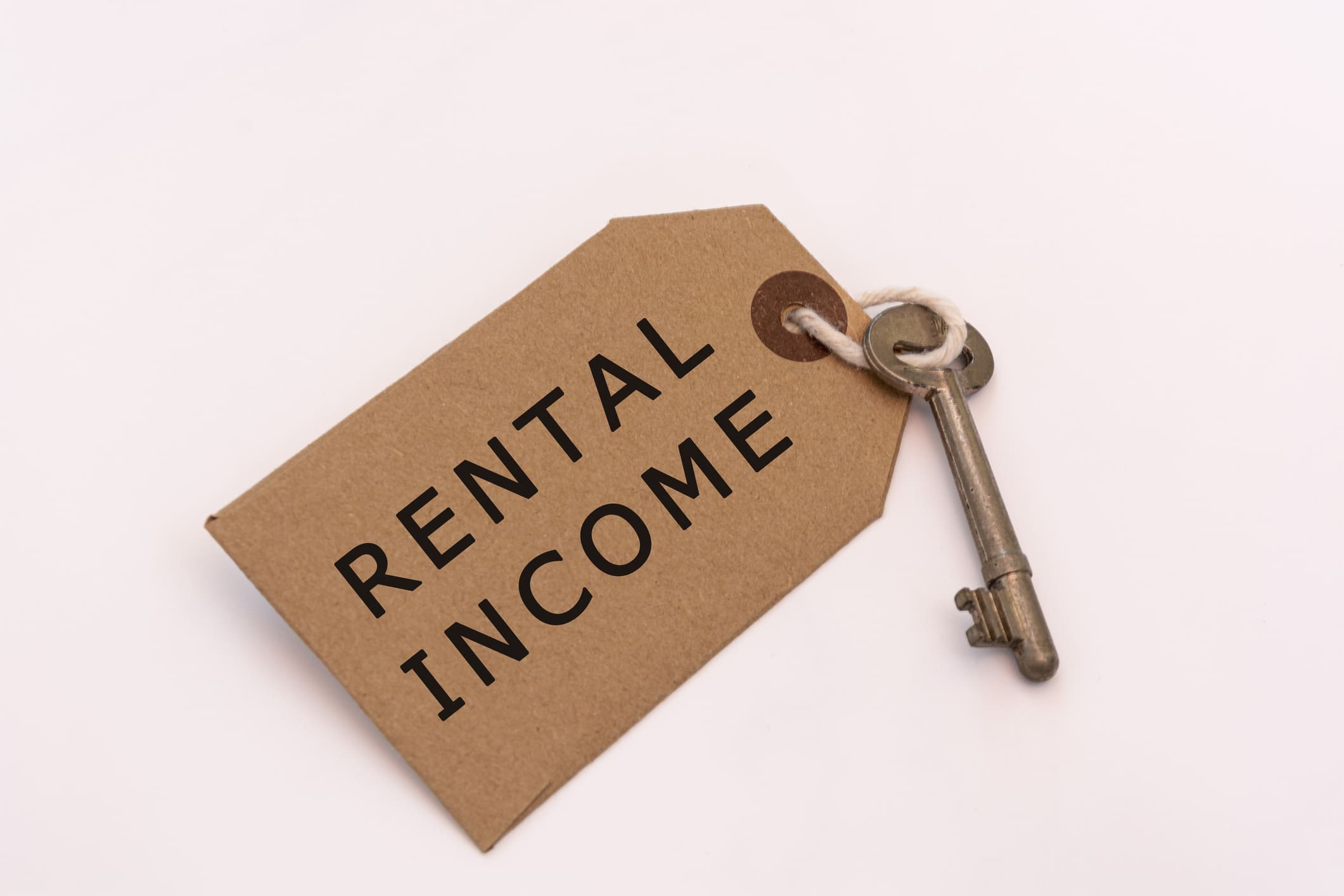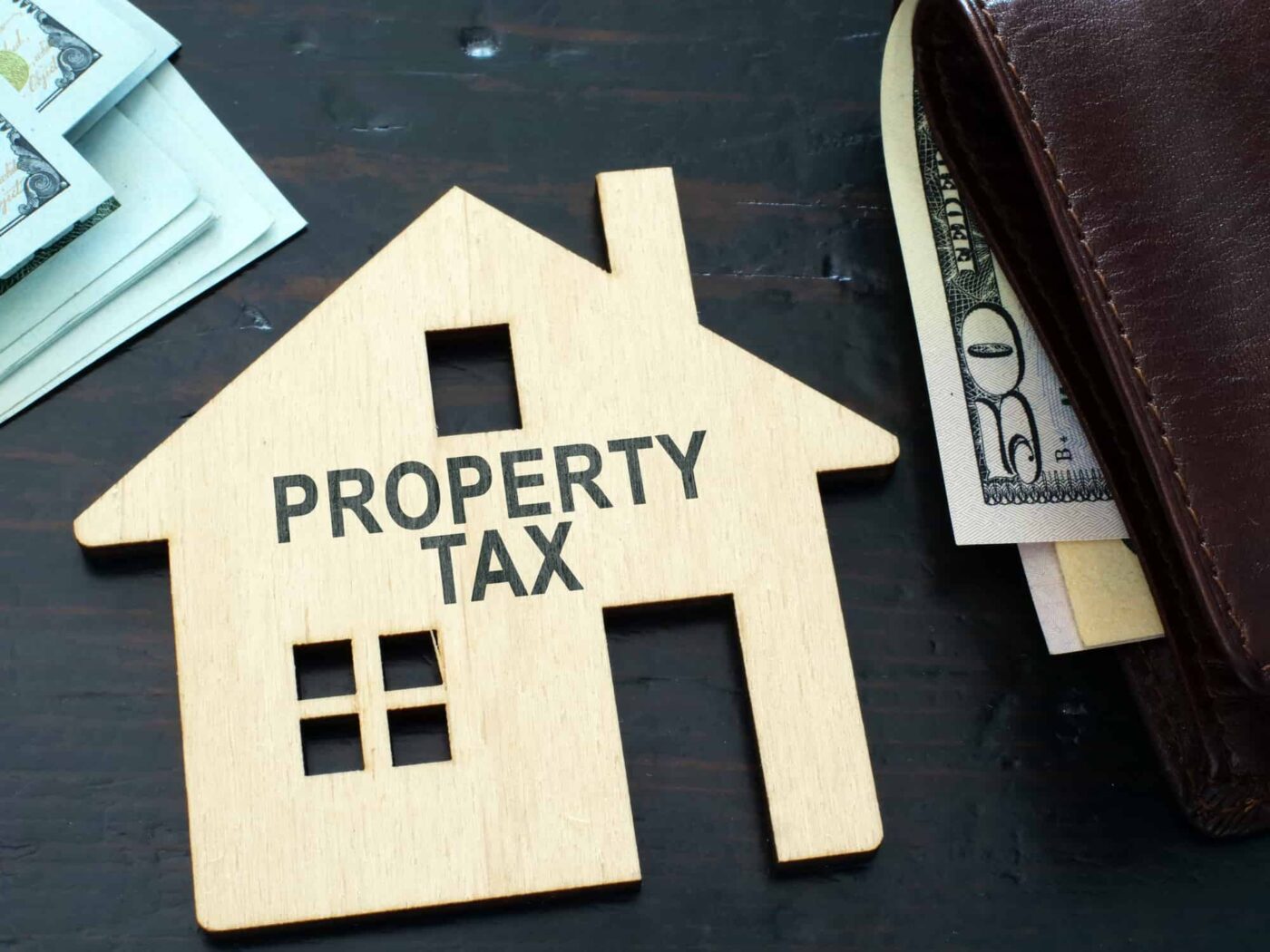Last Updated on June 9, 2025
In today’s globalized world, the United Kingdom remains a sought-after destination for property investment, drawing both residents and non-residents.
As property values continue to rise, the intricacies of UK property tax become increasingly significant.
Property ownership in the United Kingdom is a substantial investment, with far-reaching implications.
This article delves into the complexities of UK property tax and tax on rental property, offering a clear and concise guide to help you navigate the tax landscape and make informed decisions about your property investments.
- In this guide:
- Is there property tax in the UK?
- What UK property tax do I need to pay as a landlord?
- Do you pay annual property tax in the UK?
- Which UK property taxes require annual payment?
- How much property tax do I have to pay in the UK?
- Property taxes in the UK you need to know about
- UK Stamp Duty Tax
- Who has to pay Stamp Duty (SDLT)?
- Stamp Duty – exemptions and reliefs
- How is SDLT calculated?
- What are the UK Stamp Duty thresholds?
- Stamp Duty for first-time buyers
- SDLT for additional properties
- How do I pay SDLT?
- Council Tax
- Ground Rent
- Inheritance Tax
- UK Capital Gains Tax
- What about Capital Gains Tax for non-residents in the UK?
- Rental Income Tax
- Non-resident Landlord Tax in the UK. What you need to know
- Why choose PTI Returns if you are a landlord in the UK?
Is there property tax in the UK?
Yes, there is property tax in the UK. However, it is not a single tax, but rather a collection of different taxes that apply to different types of property ownership and transactions.
What UK property tax do I need to pay as a landlord?
There are several sorts of landlord taxes in the UK to be aware of:
- National Insurance Contributions (NICs) – Only for resident landlords. Non-resident landlords are generally not subject to NICs on rental income.
- Rental income tax (Income Tax)
- Stamp Duty Land Tax
- Capital Gains Tax
Not all of them are paid through self-assessment.
Stamp Duty Land Tax, Capital Gains Tax, and Income Tax are all forms of landlord tax in the United Kingdom. These are the three most important.
However, you don’t pay them all at once. When you buy an investment property, you must pay Stamp Duty, and when you sell it, you must pay Capital Gains Tax.
Income tax and national insurance contributions are paid yearly and depend on the amount of money you earn from renting out your real estate.
You must register for self-assessment and file a UK property tax return each year to pay your income tax and NICs.
Income tax is known by a variety of names, including landlord income tax, property rent tax, and buy-to-let income tax.
However, they all refer to the same tax.
You’re taxed on your net rental income, or profit, which is calculated by summing all of your rental income from different properties and subtracting any rental income tax exemptions, relief, or allowable expenses (total rental income minus allowable expenses).
Each year, the first £1000 in rent you get from your renters, is tax-free rental income also known as property allowance.
In other words, if you earn less than £1,000 a year, you don’t have to report it to HMRC.
If your rental income exceeds £1000, you’ll need to file a landlord tax return.
You’ll also have to decide whether to take the property allowance or deduct expenses from your rental revenue.
If you earn between £1,000 and £2,500 in rental income each year, you should contact HMRC.
You will have to report your UK rental income on a self-assessed tax return if you earn:
- from £2,500 to £9,999 after allowable expenses
- £10,000 or more before allowable expenses
Do you pay annual property tax in the UK?
There is no single annual property tax in the UK. However, several taxes apply to property ownership, some of which are paid annually.
Which UK property taxes require annual payment?
There are two main annual UK property taxes:
- Council Tax: Council Tax is a tax levied by local authorities to fund local services. It is paid annually by all homeowners, regardless of their residency status.
- Rental Income Tax – Rental income tax is a UK property tax that is paid by landlords on the profits they make from renting out their property. It’s paid once, annually.
Are there any other UK property that property owners must be aware of?
In addition to these two main taxes above, there are several other UK property taxes and charges that may apply to property in the UK. However, they are not annual:
- Stamp Duty Land Tax (SDLT): SDLT is a tax payable on the purchase of UK property. It is a one-off tax, not an annual tax.
- Capital Gains Tax (CGT): CGT is a tax payable on the profit made when you sell a UK asset, including property. It is a one-off tax, not an annual tax.
You also need to be aware of:
- Ground Rent – Ground rent is not typically classified as UK property tax. You will owe this rent annually if the land your house stands on belongs to someone else. It’s paid annually.
- Inheritance Tax (IHT) – This is not a UK property tax, but it can apply to property that is part of a deceased person’s estate. It is paid only once when a person dies.
- Land and Buildings Transaction Tax (LBTT) is a one-time UK property tax that is paid when you purchase a property in Scotland.
The amount of tax you pay will depend on the value of the property and whether you are a first-time buyer.
We won’t delve into the two UK property taxes mentioned below in this article because they apply to non-domestic properties and entities other than individuals.
However, we’ll provide a brief mention of them:
- Business Rates: Business Rates are UK property taxes payable on non-domestic property, such as shops, offices, and factories. It is paid annually by all businesses, regardless of their residency status.
- Annual Tax on Enveloped Dwellings (ATED) – ATED is an annual UK property tax imposed on corporations possessing residential properties in the UK valued above £500,000.

UK property tax – The Ultimate guide
In addition to the above taxes, there may be other taxes that apply to you, depending on your circumstances.
If you are unsure which taxes you are liable to pay on your property, you should seek a consultation with a property tax advisor.
How much property tax do I have to pay in the UK?
The amount of property tax you have to pay in the UK can vary significantly depending on several factors, including the property’s value, location, and individual circumstances.
- property’s value
- location of the real estate
- who owns the land where your property is located
- if this is your only property or you have more than one
- your circumstances
To determine the exact amount you would need to pay, it’s advisable to consult with a property tax advisor.
UK property taxes you need to know about
Let’s delve into the various UK property taxes and charges you might come across when you own, rent, buy, and sell land, a house, an apartment, or a commercial property.
UK Stamp Duty Tax
Stamp Duty Land Tax (SDLT) is a property tax in the UK payable on the purchase of property or land in England and Northern Ireland.
If you’re not from the UK and you’re buying a property in England or Northern Ireland, you’ll have to pay an extra 2% on the total purchase price.
SDLT only applies to properties over £250,000, unless you qualify for first-time buyer’s relief.
It is calculated as a percentage of the purchase price, and the rate of SDLT depends on the type of property and the purchase price.
This variation depends on factors such as the property’s purchase price, your immigration status, and whether you already own another property.
Who has to pay Stamp Duty (SDLT)?
SDLT is payable by the buyer of the property or land. However, there are some exemptions and reliefs available, such as for first-time buyers and for people buying property for less than a certain amount.
Stamp Duty exemptions and reliefs
There are several exemptions and reliefs available for SDLT.
For example, first-time buyers are exempt from SDLT on the first £425,000 of the purchase price of a residential property.
There are also reliefs available for people buying property for certain purposes, such as for multiple occupations or business use.
How is SDLT calculated?
SDLT is a UK property tax calculated on a tiered basis, with different rates applying to different parts of the purchase price.
What are the UK Stamp Duty thresholds?
The current SDLT rates for residential property are as follows:
Here are the stamp duty rates you’ll pay:
Stamp Duty for first-time buyers
First-time buyers are now exempt from Stamp Duty Land Tax (SDLT) on the first £425,000 of the purchase price of a residential property. This threshold was raised from £300,000 in September 2022.
SDLT for additional properties

Paying UK Stamp Duty
As mentioned earlier, an additional rate of 3% is still applied to the existing SDLT rates for anyone purchasing an additional property, such as a second home or a buy-to-let property.
Read also:
UK landlords renting property abroad
UK Rental income tax rates
How do I pay SDLT?
SDLT must be paid to HM Revenue and Customs (HMRC) within 30 days of completing the purchase of the property or land. You can pay SDLT online, by phone, or by post.
Council Tax
Council Tax is an annual UK property tax levied by local authorities in the UK to fund local services such as rubbish collection, libraries, and parks.
It is paid by all homeowners, regardless of their income or residency status.
When a property is leased, the responsibility for council tax payments falls on the tenants. You don’t owe council tax if you have temporarily left the property for renovation or refurbishment purposes.
Council tax rates can vary depending on the specific area and the value range of properties that share similar characteristics.
If you make a property purchase in Northern Ireland, you’ll find that the rates are quite personalized to individual circumstances.
There are several discounts and exemptions available for Council Tax, depending on your circumstances.
For example, single people, students, and people on low incomes may be eligible for a discount.
You can contact your local council to find out what discounts and exemptions you may be entitled to. Council Tax bills are typically sent out by local authorities in April or May each year.
You can pay your Council Tax in several ways, including by direct debit, online, or by cheque. If you do not pay your Council Tax, you may be charged a penalty.
You may also be liable for court costs if your local authority takes you to court to recover your unpaid Council Tax.
Ground Rent
Ground Rent can differ from one lease to another, and there isn’t a fixed method for its determination. In some cases, modern flats might have Ground Rents ranging from £200 to £500 per year, whereas many former local authority flats typically have a Ground Rent of £10 per year.
If you don’t own the land your house is on (leasehold), you may have to pay Ground Rent, usually around £50-£100 per year for residential properties.
In the UK, you can also buy freehold properties where you own both the land and the house.
It’s different from property taxes like Council Tax or Stamp Duty, which are direct taxes imposed by the government. Ground Rent is more akin to a leasehold charge or rental fee.
Inheritance Tax
If you inherit part or all of someone’s estate in the UK, you might have to pay a tax called inheritance tax.
This tax is usually set at a rate of 40%, but if you’re the spouse of the deceased, it’s different.
For example, if your grandparents gifted you a flat for your graduation, and they passed away within 7 years of that gift, it’s considered inheritance.
There’s an initial tax-free allowance of £325,000 for heirs who aren’t spouses.
From 2017, direct heirs may receive tax relief if they’ve lived in or used the inherited property.
Despite the allowances and reliefs, inheritance tax in the UK is quite high. It’s a good idea to plan and manage your assets early, to potentially reduce the impact of this tax.
UK Capital Gains Tax
Capital Gains Tax is a tax on the profit made when you sell an asset, such as a property, shares, or a business.
The amount you pay depends on how much you earn and the type of thing you sold.
In the tax year 2023/2024, the rates for Capital Gains tax in the UK are as follows:
- If your total annual income is below £50,270, you’ll pay 10% (18% for residential property) on your entire capital gain.
- If your total annual income exceeds the £50,270 threshold, the rate for your entire capital gain is 20% (28% for residential property).
For the 2023 to 2024 tax year the Capital Gains Tax allowance in the UK is £6,000
Exemptions and reliefs: There are several exemptions and reliefs available for CGT, such as the annual allowance, the main residence relief, and the gifts relief.
How to pay CGT: If you owe CGT, you must report it to the UK government and pay the tax within 30 days of selling the asset.
You can pay CGT online, by phone, or by cheque.
Here are some additional things to keep in mind about CGT:
- Losses: If you make a loss when you sell an asset, you can offset that loss against your other capital gains.
- Foreign gains: You may also have to pay CGT on gains made on foreign assets.
What about Capital Gains Tax for non-residents in the UK?
Capital Gains Tax (CGT) applies to non-residents in the UK, but there are some special rules.
Gains on UK residential property: Non-residents are liable to CGT for gains made on the disposal of UK residential property. This includes gains made on the disposal of a main residence in the UK.
Gains on other assets: Non-residents are generally not liable to CGT on gains made on the disposal of other assets, such as shares in UK companies, unless they return to the UK within 5 years of leaving.
Temporary non-residents: If you are temporarily non-resident, you may be liable to CGT on gains made on the disposal of UK assets during your period of non-residence.
However, there are some reliefs available for temporary non-residents. If you are unsure whether you are liable to CGT, you should seek professional advice from a tax advisor.
Here are some additional things to keep in mind about CGT for non-residents:
- Remittance base: Non-residents are taxed on a remittance basis, which means that they are only taxed on income and gains that are remitted to the UK.
- Double taxation treaties: The UK has double taxation treaties with many countries, which can help to reduce the amount of CGT that non-residents have to pay.
If you are a non-resident with property in the UK, our tax advisors can help you with the payment of CGT.
Got questions? You can request a non-obligation consultation with a tax advisor.

UK Rental income
Rental Income Tax
Whether or not you’re a UK tax resident, paying tax on rental income is mandatory if you earn rental revenue.
However, if you’re a foreign national who has purchased a UK property for rental income and doesn’t intend to relocate to the UK shortly, you can utilize a double taxation treaty to prevent paying tax on rental income twice.
Here’s how it works:
- You report all your income in a tax return, which includes income from both the UK and abroad, to determine your total tax liability.
- If you’ve already paid tax on the income you received in the UK and can provide evidence, you can demonstrate that you’ve fulfilled your UK tax obligation.
- In your home country, you calculate your income tax on the rental income, subtracting the tax amount already paid in the UK. You then pay the remaining balance to fulfill your tax responsibilities.
Please, note that tax laws and double taxation treaties can be complex, and it’s advisable to seek professional property tax advice to ensure you comply with tax regulations in both the UK and your home country.
Non-resident Landlord Tax in the UK. What you need to know:
Non-resident landlords in the UK are liable to pay rental income tax.
The tax rate depends on the individual’s overall income tax band.


